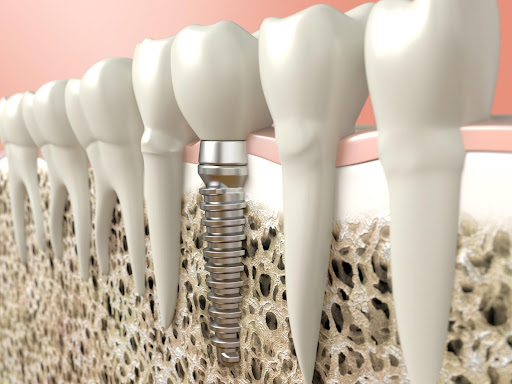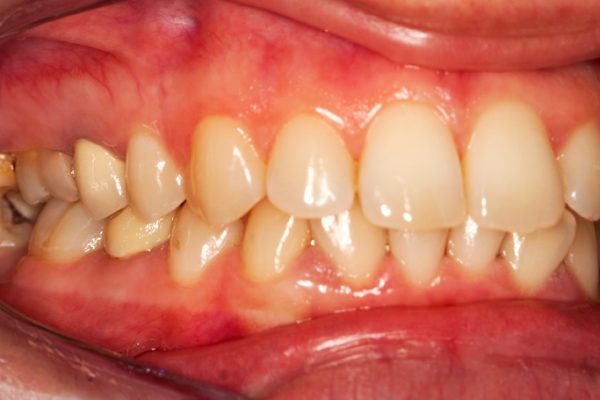One of the groundbreaking solutions to a missing tooth is a dental implant. This is a permanent and long-term fix for replacing missing teeth, and for years, the treatment has enjoyed massive popularity and offers various benefits. See more about this procedure on this site here.
For one, the presence of an implant will preserve the jaw bone structure, improve one’s appearance, help in better chewing, and prevent the other teeth from shifting into different places. One’s smile will also improve significantly, enhancing an individual’s self-confidence. Although these implants are preferred by many as one of the best tooth replacement solutions, some may experience problems after the installation because they have an underlying medical condition or there’s insufficient jaw bone in place.
It’s best first to research the requirements you need to meet before getting the implant or choose a dental care provider who will give you sound advice. Generally, the best dentists will examine your oral health, check your teeth, and recommend if the implant is the best option for you in the first place. So many problems can be avoided if you go to a high-quality and licensed dentist before deciding to go on with the procedure.
Overview of Implants
The implant is one of the long-term and high-tech fixes for a missing tooth. The roots are generally replaced with titanium screws so they will fuse into the jawbone to put them more securely into place. This root will act as a solid anchor for the restoration of dentures, bridges, and crowns.
Most of these permanent solutions will allow you to look better, improve speaking and chewing, and you also don’t need to worry about cavities. Other reasons why so many people prefer these are the following:
- They have broken or fractured teeth
- There are a lot of cavities present in the mouth
- Prevent issues with bruxism or excessive teeth grinding
- A fix for a missing tooth because of an injury or accident
It’s always an excellent idea to consult with a professional dentist for any risk factors that you may have to lessen any issues and complications down the road significantly. Call a dentist experienced in dental implants so the procedures will go well and you can get a durable implant. With the proper care from the right dentist, you’ll also be able to improve your oral health, get rid of bad breath, get your other tooth structures checked, and make sure there’s no gingivitis and other issues in your mouth.
Common Issues with the Implants
- Infection at the Site
There’s always the risk of infection when you go through any kind of treatment, which is very painful for those experiencing this. In some cases, poor oral hygiene, autoimmune diseases, and smoking can contribute to the infection, and the treatment will depend on its severity and location.
For cases like gum infection, this can require soft tissue graft or antibiotics and can be administered by your dentist upon check-up. However, for bone infection, a major surgery involving the removal of the implant itself will be necessary to let the bone tissue heal. A professional and experienced dental care provider may also recommend a bone graft on the site.
- Allergic Reactions
Some people may be allergic to specific metals and this, including titanium alloy. The implant’s post is generally made up of titanium, but allergies rarely happen. However, they are still possible, and some of the signs include burning sensations, tingling, swelling, and loss of taste. You can ask your dentist to replace the post with other materials if you’re allergic to titanium. See studies about allergic reactions to titanium posts in this link here: https://www.ncbi.nlm.nih.gov/pmc/articles/PMC7698636/.
- Not Enough Bone Support
The implant procedure is not for everyone, and this is not only the solution available for those who want a replacement tooth. You can try dentures and bridges, and your dentist will determine which ones are best for you. The insufficient jaw bone will not support the implant, and the temporary tooth won’t be able to integrate well with the mouth.
If the integration fails to occur, there can be significant discomfort, and this is why most dentists will make sure that there’s enough jaw bone on the site before they go ahead with the procedure. An x-ray and oral examination may be required before the implant can be installed.
- Micro-Movements
Micro-movements can occur when the temporary tooth becomes unstable. This is due for immediate replacement, and generally, the dentures are not attached to the titanium post until it’s properly integrated with the bone. In some cases, a surgeon may need to perform an instant tooth replacement after the implantation, leading to stress in the body as well as failure and complications.
- Loosening of the Post
There are cases where osseointegration can occur, and this process sometimes happens when the implant tries to fuse with the jaw bone. It might happen in just a few weeks after the placement of the post. Complete osseointegration is needed for a higher chance of long-term success, and this may occur between 4 to 6 months. If there’s no fusion with the jaw bone, the surgeon will repeat the entire procedure after the mouth is completely healed.
- Gum Recession
Other times, the gum tissues may start to recede, which commonly happens around the site. This will result in redness, inflammation, and pain. The best and most highly-qualified dentists will stop this issue from happening in the first place, or they will prevent the problem from advancing before it gets worse. The earlier the issue is resolved, the better the outcome is going to be.
I am an Ambitious girl with a special interest in writing and sharing my knowledge. I love to hangout with nature and learn from it. My words will display the power of nature to the best as I love to write about the environment.






